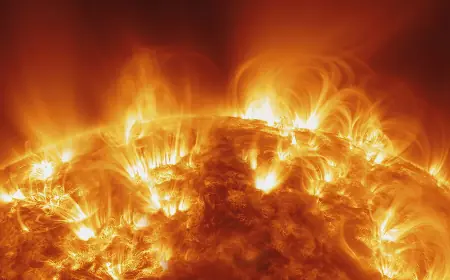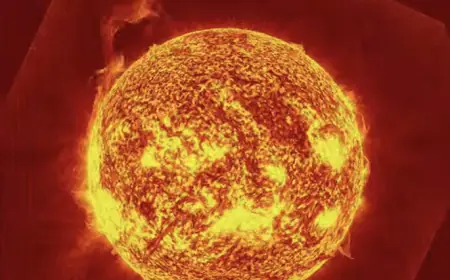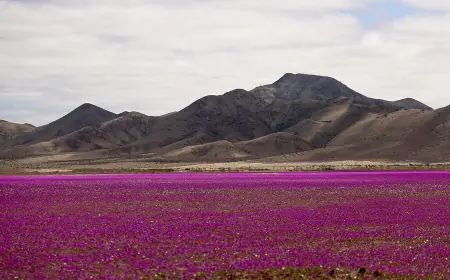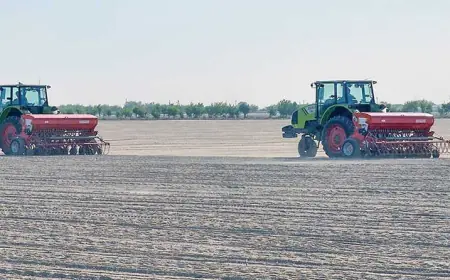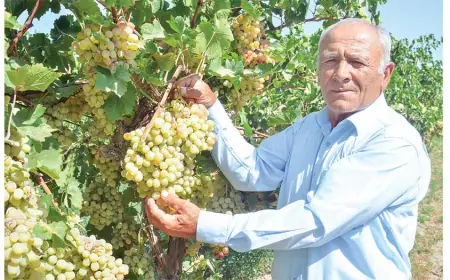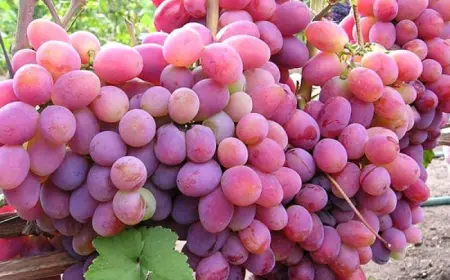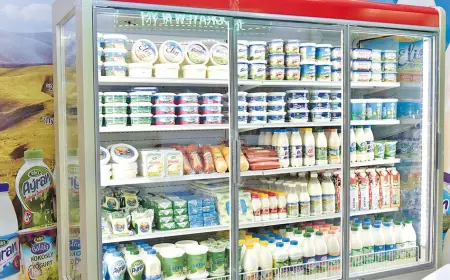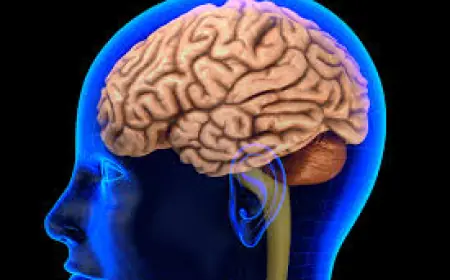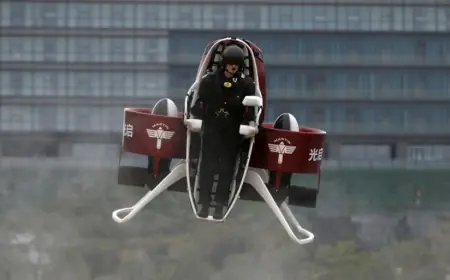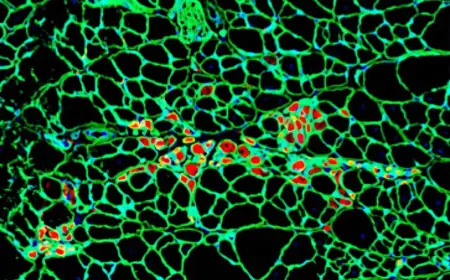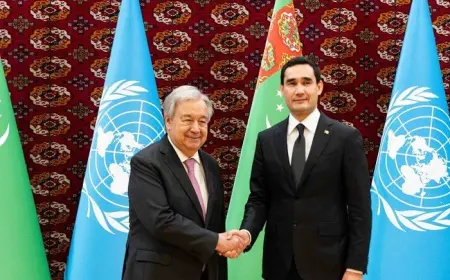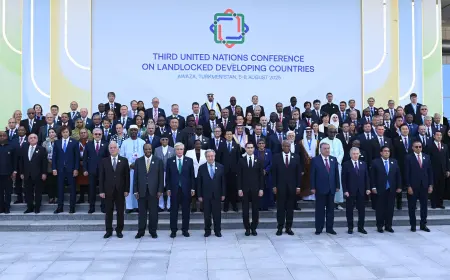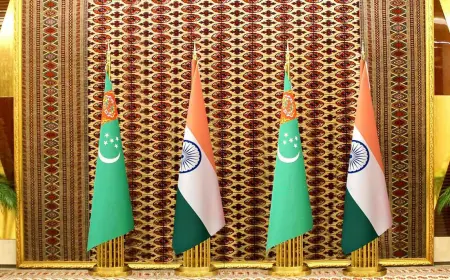Expanded Session of Turkmenistan’s Cabinet of Ministers
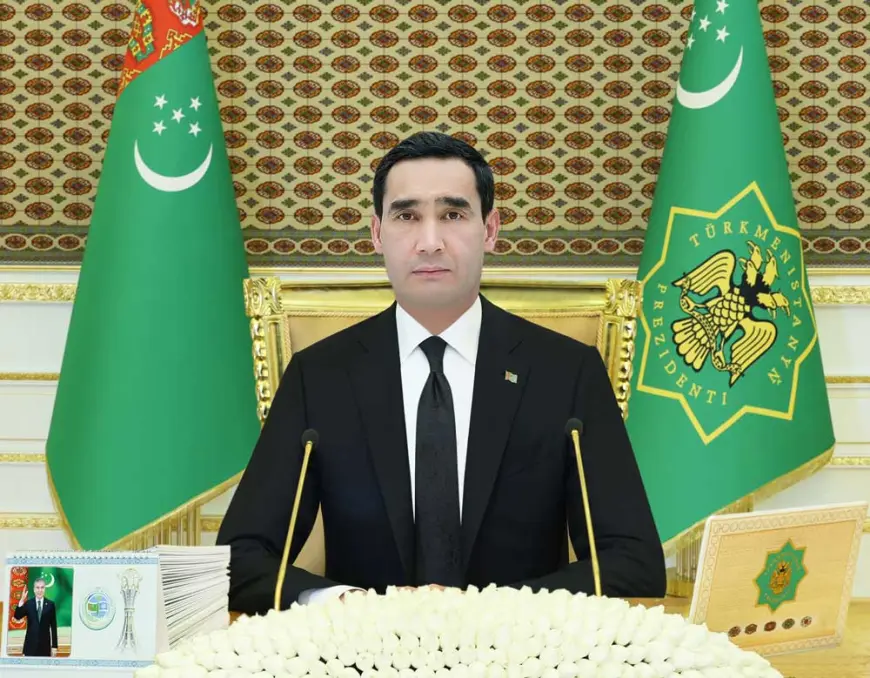
Yesterday, President Serdar Berdimuhamedow held an extended session of the Cabinet of Ministers, during which the results of work done over the first six months of this year were reviewed, including the progress of the country’s socio-economic development programs and personnel matters. Reports were also heard from Deputy Prime Ministers, various department heads, and the governors (häkimler) of the provinces.
Attendees included representatives of the Mejlis of Turkmenistan, members of the State Security Council, governors of regions and the cities of Ashgabat and Arkadag, rectors of universities, editors of newspapers and magazines, and other officials.
The first speaker was Deputy Prime Minister Kh. Geldimyradov, who reported on the macroeconomic indicators for the national economy over the past six months.
According to the report, as a result of comprehensive measures taken during this period:
-
GDP grew by 6.3%, including:
• Industry +1.0%
• Construction +5.1%
• Transport and communications +10.8%
• Trade +9.9%
• Agriculture +4.5%
• Services +8.6%.
Compared to the same period in 2024, total production output increased by 9.9%. Positive production results were achieved across sectors.
Retail trade volume rose by 12.7%, and foreign trade turnover by 2.9%.
Wages at large and medium enterprises increased by 11.4% compared to the same period in 2024. Salaries, pensions, state benefits, and student stipends were funded promptly and in full.
Capital investments from all financing sources increased by 15.6% year-on-year.
A report was also given on the progress of the 2022–2028 Presidential socio-economic development program.
Continuing the meeting, the Vice‑Premier presented a draft of the new version of the “National Program for Transforming the Social and Living Conditions of Residents in Villages, Settlements, Towns of Etraps and Etrap Centers for the Period up to 2028.” This document envisions constructing socio-cultural facilities, residential housing, and the installation or modernization of utility networks from 2025 to 2028. A draft resolution was submitted to the head of state.
Next, Minister of Finance and Economy M. Astanagulov reported on the implementation of the state budget, progress in capital investment usage, and the National Rural Program for the first half of the year.
-
The budget’s revenue side was executed at 101.5%; expenditures at 97.6%.
-
Local budgets achieved 102.6% of revenues and 98.5% of expenditures.
-
Sixty‑three sessions of budget-balancing commissions were held, including 54 regional ones, reviewing financial-economic performance and resource utilization.
-
Investment in the economy reached 17.7% of GDP. Of this, 44.8% financed production projects and 55.2% socio-cultural facilities.
-
Reports on the National Rural Program were also given.
Chairman of the State Statistics Committee D. Amanmuhammedov reported on the completion of ministry and sectoral plans for January–June 2025:
-
Gas production: 38,991.4 million m³; oil: 491.5 thousand tons.
-
Production increases: diesel +5.1%, gasoline +2.8%, fuel oil +13.6%, bitumen +9.2%, cement +50%, steel fittings +58.4%, confectionery +6%, sausages +8.6%, butter +3.8%, mineral water & soft drinks +1.3%.
-
Cotton yarn +22.6%, cotton fabric +27.3%.
-
Transport and communications: freight up 0.6%, passenger transport up 3.2%, communication services +20.7%.
-
Agriculture: vegetables +15.1%, fruits +2.7%, potatoes +3.8%, milk +2%, meat +8.9%.
-
Non-state sector showed positive indicators.
-
Efforts to modernize statistics collection methods were also noted.
President of the Central Bank T. Myalikov reported:
-
Bank lending to the private sector rose by 19%, agriculture lending up 26.9%.
-
As of July 1, 2025, mortgage lending (under a Presidential decree) increased by 20.2%.
President Berdimuhamedow emphasized the need for continued sweeping reforms across all sectors. He called for thorough analysis of program implementation, full and timely tax payments, tighter control over fiscal expenditures, and preparation of next year’s state budget on schedule. He stressed stabilizing the national manat, improving investment policies, financial sources for investment, and strengthening banks through cooperation with international financial organizations.
The President signed a resolution approving the new version of the National Program for Improving Social and Living Conditions in villages, settlements, etrap towns, and etrap centers through 2028.
Deputy Prime Minister B. Amanov reported on oil and gas extraction and expanding export routes:
-
Turkmennebit exceeded oil production targets by 110%, refining targets by 109%.
-
Production targets: gasoline 110.3%, diesel 101.8%, polypropylene 100%, lubricants 116.8%.
-
Information on LPG, natural and associated gas production and export was presented.
President emphasized further development of the oil and gas sector, export diversification, adoption of advanced technologies, geological exploration, and environmentally friendly production.
Deputy Prime Minister B. Annamammedov reported on construction and industrial sectors:
-
Product targets achieved at 109.2%.
-
Ministry of Construction & Architecture reached 114%, Ministry of Industry & Construction 111.7%, Ministry of Energy 109.3%, Türkmenhimiýa 108%.
-
Road construction agency reached 104.5%, Ashgabat administration 112.4%.
-
The President dismissed D. Sapbaev as Chairman of Türkmenhimiýa due to shortcomings and appointed T. Ataev as acting chair.
-
President stressed maximizing capacity utilization, modernization, building new factories, warehouses (especially for fertilizers), power plants (including renewables), and road upgrades.
He also assigned the Vice‑Premier to ensure timely completion of year-end infrastructure projects.
Deputy Prime Minister N. Atagulyev reported on ministries, agencies, and the private sector:
-
Trade & Foreign Economic Relations ministry: turnover growth 115.9%, production +100.3%.
-
Textile ministry: output +106.8%; cotton yarn +125.1%, fabric +130.2%, leather +124.4%.
-
Türkmenhaly at 100.4% production target.
-
Commodity exchange hosted 146 auctions, 14,323 contracts.
-
Chamber of Commerce achieved 106.8%.
-
Union of Industrialists & Entrepreneurs: agricultural & food output +106.5%, industrial goods +105.7%.
-
President appointed N. Agakhanov as minister of Trade & Foreign Economic Relations.
-
He called for full leverage of trade potential, improving supply and quality of goods, using digital systems for textiles and carpets, and encouraging private sector in manufacturing and exports.
-
He directed further modernization of the commodity exchange, Chamber of Commerce, and adoption of international best practices.
Deputy Prime Minister B. Seidova reported on cultural and social programs:
-
To mark 2025 as the International Year of Peace and Trust and 30 years of permanent neutrality, various celebrations were held, along with creative competitions.
-
President’s new book “Makhtumkuli – Thinker of Peace” was presented.
-
Competitions for bakhshi musicians in Ashgabat, Arkadag, regions; “Music of Peace” and “Avaza – Land of Friendship” festivals.
-
Culture Week in Ahal region; June 29 event in Arkadag marking its second anniversary.
-
Cultural workers traveled abroad; reports on libraries, museums, publishing, Turkmenfilm, and media were presented.
President stressed preserving cultural heritage, literature, global promotion of national traditions, use of modern technology in libraries and museums, founding new films, organizing competitions, exhibitions, and preparing for the 34th Independence Day anniversary.
Deputy Prime Minister B. Orazdurdyyeva reported on education, science, healthcare, and sports:
-
Continued educational reforms and teaching innovations.
-
Students won 748 medals in international academic Olympiads.
-
A science conference “Science, Technology & Innovation in the Era of Revival” and awards ceremony for youth research projects were held.
-
Advances in healthcare included new medical methods and operations funded by the G. Berdimuhamedow Charitable Fund for children.
-
XII Turkmen-German Healthcare Forum, Immunization Week with UNICEF, and Turkmenistan Day at WHO’s European regional office in Copenhagen were conducted.
-
Sports: international tournaments in wrestling and chess (U8, U10, U12); athletes won 466 medals internationally.
President signed orders approving university and academic institution admission plans for 2025–2026 and commission memberships. He urged good preparation for the new academic year, repairs at schools and universities, noted the opening of the International University of Industrialists and Entrepreneurs, and of a new building at the State Energy Institute, to support new specialties and expansion of student intake.
He encouraged fair entrance exams with public oversight, continued research and integration of science with industry, international cooperation, and boosting resources in healthcare, digital services, sports, and Olympic disciplines.
Director of the Transport and Communications Agency, M. Chakyyev, reported over 115.7% growth in services and works in the first half:
-
Freight transport: 102.6%; passenger: 102.1%.
-
Services growth: rail 104.5%, bus 111.3%, air transport 121.5%, sea & river 114.4%, communications 120.7%.
-
Implementation of the 2019–2025 Digital Economy Concept.
-
Deployment of 4G+ in Avaza and 5G in Arkadag by Altyn Asyr.
President described transport and communications as key economic sectors. He abolished the Transport & Communications Agency, creating instead the position of Deputy Prime Minister in charge of that sector. New bodies will be formed: Ministry of Railways, Ministry of Communications, Ministry of Road Transport, State Service Türkmenhowaýollary, State Service for Sea & River Transport.
He appointed M. Chakyyev as Deputy Prime Minister for Transport & Communications, with a six-month probation. The new ministries and state services were set up, and personnel appointed:
-
Minister of Railways: M. Akmammedov.
-
Minister of Communications: Kh. Khudaiguliyev (with probation).
-
Minister of Road Transport: B. Annadurdyyev.
-
Head of State Service Türkmenhowaýollary: D. Saburov.
-
Head of State Service for Sea & River Transport: A. Shanazarov.
They warmly thanked the President and promised diligent work.
President instructed Chakyyev to increase passenger and freight volumes, improve service quality, modernize rail lines and capacity, expand international road transit, renovate airports, upgrade fleets, and open economically viable new domestic and international air routes. He also emphasized full utilization and modernization of the Turkmenbashi International Seaport and the Balkan shipbuilding & repair yard, and introduction of new communications services.
Regional governors then reported:
-
Ahal province (T. Nurmyradov): transporting wheat harvest to elevators, plowing freed lands, caring for cotton and vegetable crops.
-
Balkan province (H. Ashyrmyradov): similar grain transportation, field preparation, cotton care, harvest of potatoes and vegetables, infrastructure projects due for completion this year.
-
Dashoguz province (D. Babaev): wheat plowing and seed prep, rice field maintenance, autumn field work, and projects under the Presidential and National transformation programs.
-
Lebap province (M. Annanepesov): wheat transport and storage, field plowing and fertilizing, preparation for next season
Crop care operations are ongoing in the cotton fields, with farm machinery and equipment being fully utilized.
Practical measures are being taken to harvest potatoes and vegetables. At the same time, paddy fields are being tended according to agronomic standards.
A report was also given on the construction of facilities scheduled to be commissioned this year under the National Rural Program.
Continuing the session, the head of state relieved M. Annanepesov of his post as Governor (häkim) of Lebap Province, appointing D. Gendzhiev—Chairman of the State Water Management Committee—as both Governor of Lebap Province and head of that committee, and signed the relevant decrees.
Expressing gratitude for the trust placed in him, D. Gendzhiev pledged to work diligently in his new role and conveyed his best wishes to the President and Hero Arkadag for health, longevity, and success in serving the country.
Governor B. Orazov of Mary Province presented results for January–June of the current year:
-
Collected grain is being transported from reception centers to elevators and silos.
-
Following harvest, fields are being plowed, and both farm machinery and high-quality seeds are being prepared for the upcoming sowing season.
-
In cotton fields, inter-row cultivation, fertilization, and irrigation are being carried out according to agronomic norms.
-
Work continues on harvesting potatoes and vegetables, supplying domestic markets, and preparing for autumn sowing.
-
Measures are also in place for sugar beet sowing: irrigation is underway, and emerging plants are being tended.
-
Additionally, reports were given on progress in building socio-cultural and industrial facilities scheduled for completion this year as part of national development programs.
The President relieved B. Orazov from his position as Governor of Mary Province and appointed D. Annaberdiev in his place, signing the corresponding documents.
Expressing appreciation for the trust placed in him, D. Annaberdiev promised to apply all his experience and skills in his new capacity and offered his best wishes to the President and Hero Arkadag for health, longevity, and success in advancing the nation’s welfare.
Deputy Prime Minister T. Atakhallyyev reported next, opening with the good news that over 1.4 million tonnes of grain have been harvested, fully meeting the planned target.
Expressing heartfelt gratitude to the President for his support of the comprehensive development of the agricultural sector, the Deputy Premier wished the President and Hero Arkadag good health, longevity, and continued success in their work for the nation’s prosperity.
He then delivered a report on the performance of the managed sectors during the first half of the year, as well as ongoing agricultural activities in the provinces.
-
Agricultural production grew by 113.3% compared to the same period in the previous year.
-
By sector: the Ministry of Agriculture – 100%; Ministry of Environmental Protection – 103.5%; State Water Management Committee – 138.7%; State Concern “Türkmenpagta” – 124%; State Union “Türkmengallaönümleri” – 108.2%; State Union “Türkmenobahyzmat” – 101%; State Union of Food Industry – 104.7%; State Union of Livestock & Poultry Industry – 103.2%; State Union “Türkmen atlary” – 100.8%; investment utilization reached 278.2% of plan.
Currently, seasonal campaigns include transporting collected wheat to storage sites, preparing freed fields, machinery, and seeds for sowing, and managing cotton fields (inter-row cultivation, fertilization, irrigation). Rice fields in Dashoguz and Lebap provinces are also being tended. Work on growing vegetables and other crops continues, with efforts to ensure population supply.
To improve irrigation and land reclamation, actions include collecting water in reservoirs and cleaning irrigation canals and drainage systems.
Addressing the Deputy Prime Minister, sector leaders, and provincial governors (including Ashgabat and Arkadag), the President emphasized the importance of successfully implementing the Country’s Socio-Economic Development Program and the National Rural Program.
President Serdar Berdimuhamedow noted that general plans for Ashgabat and the provinces must be accelerated; construction of housing, hospitals, and social infrastructure must be strictly controlled; and urban architectural transformation should continue. He also stressed the need to ensure potable water, electricity, and natural gas for the population, maintain cleanliness and infrastructure upkeep, fully execute local budgets, and achieve revenue targets for taxes and fees.
Highlighting agronomic compliance for higher crop yields—especially wheat and cotton—he urged improved organizational and methodological work, distribution of high-quality wheat seed, expanding processed food production, and modernizing food industry facilities. He tasked officials with ensuring adequate bread supply to all citizens.
He called for the use of advanced methods to increase livestock and poultry numbers, close monitoring of agricultural machinery and equipment, prioritizing cotton processing at specialized enterprises, and ensuring high-quality cotton supply to textile complexes.
Directives were also issued for strict oversight of water resource usage, creation of additional water reserves, preparation of land maps, environmental protection, and fostering ecological welfare. He emphasized transforming the country into a blooming garden, developing horse breeding, and increasing the population of Akhal-Teke horses.
The President expressed satisfaction with the abundant wheat harvest, noting that farmers have delivered high-quality grain to the nation’s granaries with good results. He said:
“The bountiful wheat harvest is the wealth of our people, the sovereign Motherland, the prosperity and abundance of our bread baskets.”
He congratulated the hardworking farmers who fulfilled their contractual obligations and wished them new labor achievements.
Deputy Prime Minister and Foreign Minister R. Meredov then reported on the Ministry of Foreign Affairs’ performance for January–June:
-
Under President Berdimuhamedow’s leadership, neutral Turkmenistan continues its foreign policy aimed at strengthening friendly relations and constructive cooperation bilaterally and multilaterally.
-
In the first half of 2025, the President made working visits to:
-
Uzbekistan (attending the first “Central Asia–EU” Summit);
-
Russia and Kazakhstan (for the “Central Asia–Italy” and “Central Asia–China” Summits);
-
Japan;
-
A state visit to Mongolia.
-
-
The National Leader and Hero Arkadag visited Monaco, made friendly visits to Kazakhstan, Kyrgyzstan, and Uzbekistan, and an official visit to France, as well as a working visit to Tatarstan, Russia.
-
In March, Turkmenistan hosted Georgia’s Prime Minister on an official visit.
-
Strengthening partnerships with interregional and international organizations remains a key foreign policy direction.
-
In the first half of 2025, Turkmenistan received visits from:
-
Secretaries-General of the Organisation of Islamic Cooperation and Bureau International des Expositions;
-
Vice President of the World Bank for Europe and Central Asia;
-
Vice President of the Asian Development Bank for South, Central, and West Asia.
-
-
Numerous foreign and domestic delegations visited Turkmenistan; 336 online meetings and 1,495 official negotiations took place.
-
Ninety-seven international agreements were concluded.
-
Regular inter-ministerial consultations were held, including with:
-
The High Representative of the EU for Foreign Affairs and Security Policy—Vice President of the European Commission;
-
The EU Commissioner for International Partnerships.
-
-
Continuous efforts are being made through Turkmen embassies to strengthen and expand diplomatic relations.
In summary, the President emphasized that independent Turkmenistan, adhering to positive neutrality, pursues foreign policy aimed at universal prosperity. He highlighted the importance of continued productive partnerships in politics-diplomacy, trade-economy, culture-humanitarian, and science-education, and cooperation with international organizations.
He noted Turkmenistan’s initiative led the UN General Assembly to declare 2025 the “International Year of Peace and Trust,” and directed the Deputy Premier and Foreign Minister to continue organizing high-level international events in the country.
Next, Speaker of the Mejlis (Parliament) D. Gulmanova reported on parliamentary activities for January–June:
-
Thirteen draft laws were reviewed and adopted, including:
-
The Civil Code of Turkmenistan;
-
Law On Courts;
-
Law On the Unified State Voter Register;
-
Law On Acceding to the relevant Protocol of the International Convention on the Treaty of Carriage by Rail.
-
-
Amendments were made to existing laws covering criminal, arbitration, civil, criminal procedure, family, labor relations, taxation, commemorative medals, administrative procedures, road transport, migration, internal affairs, and customs.
-
Eleven Mejlis resolutions were adopted.
-
Seminars on modern legislative methods were held for the State Academy of Public Administration with deputies taking part.
-
Credentials were received from seven foreign ambassadors accredited to Turkmenistan, and 32 meetings were held with foreign parliaments and international organizations.
-
Deputies and Mejlis staff participated in 62 seminars on improving legislative process and implementation of state programs, conducted with international entities.
-
Twenty-one official study visits abroad were made for experience exchange.
-
A draft law was prepared for establishing a jubilee medal “30 Years of Turkmenistan’s Neutrality,” and a commemorative sign, honoring those who contributed to national sovereignty, neutrality, international peace and trust, and achievements in political, economic, and cultural spheres.
President Berdimuhamedow addressed the Mejlis, emphasizing the solemn celebration of the country’s 30‑year neutrality anniversary. He signed the Law “On the Establishment of the Jubilee Medal ‘Türkmenistanyň Bitaraplygynyň 30 ýyllygyna.’” He also stressed the importance of fortifying the country’s legal framework following the passage of 13 new laws and multiple amendments.
To conclude, the President noted that half‑year results demonstrate successful implementation of adopted programs. GDP growth reached 6.3%, and 17.829 billion manat in investments were deployed—15.6% more than the same period last year. Some 269,700 m² of housing were commissioned nationwide. Construction continues on industrial facilities, kindergartens, schools, and other infrastructure.
He affirmed that the country’s economy has steadily developed, with new competitive enterprises, economic and financial stability, employment support, export growth, and digital technology adoption across sectors.
He remarked that Turkmenistan’s declaration of 2025 as the International Year of Peace and Trust by the UN General Assembly is highly significant, coinciding with the 30-year neutrality anniversary. He said important international events are planned for the second half of the year, including a high-level Forum on Peace and Trust on December 12, 2025, as well as Independence Day and Neutrality Day celebrations.
During the Independence celebrations in the International Year of Peace and Trust, a session of the Halk Maslahaty (People’s Council) will convene to review national progress and future goals. The Council, Mejlis, Cabinet of Ministers, provincial and etrap administrations, ministries, agencies, and public organizations must prepare diligently.
An organizing committee will be formed to oversee the next People’s Council session—setting dates and ensuring high-level preparations. This committee should pay particular attention to recognizing citizens who contributed to the nation’s political, economic, and cultural achievements, awarding state honors and titles accordingly; work in this area will be conducted by the Halk Maslahaty and Mejlis.
The President noted that overall first-half indicators across the country are satisfactory and instructed all ministers and sector heads to hold half‑year review meetings on July 12.
Ministers—except those in the agricultural sector—and provincial governors were granted their annual labor leave starting August 1, to be taken at national sanatoria or the Avaza Tourist Zone.
All leaders must participate in organizing the August international conference at Avaza Tourism Zone.
The President stated that everyone should attend the organizational government committee meeting chaired by Hero Arkadag on July 13 at Avaza.
This meeting will address preparations for the Third UN Conference on Landlocked Developing Countries—scheduled to be held at Turkmenistan later this year. All officials are expected to carry out work in accordance with the decree authorizing the high-level international forum, in service of Turkmenistan’s neutrality and global stature.
Closing the extended Cabinet session, President Serdar Berdimuhamedow wished all participants health, family well‑being, and great success in their work.
-
